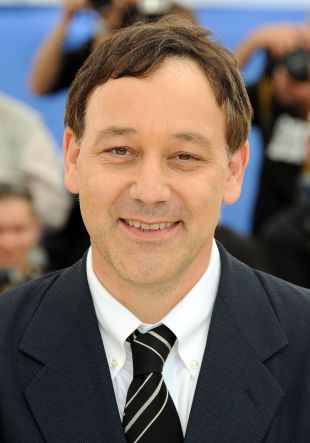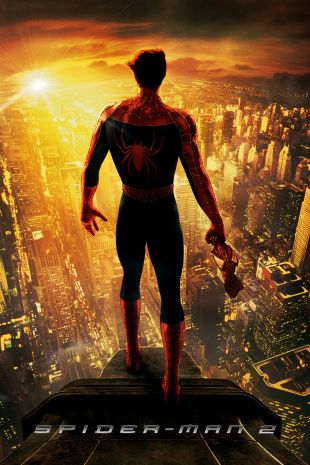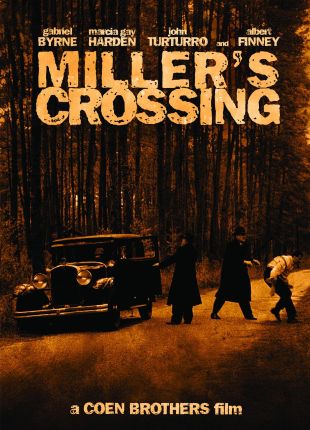Like most children of the 1960s, Sam Raimi grew up acting out his fantasies with the benefit of an 8 mm movie camera. The film gauge "grew to 35" when Raimi, with the aid of friends and relatives, raised 500,000 dollars to film a horror feature, The Evil Dead (1983). Not your average sliced-up-teenager epic, Evil Dead was a marvelously wicked assault on the senses, belying its tiny budget with several extremely clever (if nausea-inducing) set pieces. Raimi switched to slapstick comedy with Crimewave (1985), a wild Detroit-based crime caper co-scripted by Raimi's friends and fellow devotees of the bizarre, Joel and Ethan Coen. Evil Dead 2: Dead By Dawn (1987) giddily expanded the scope and splat-stick humor of the initial installment, and quickly became a cult classic with it s over-the-top gore and imaginative direction. Evil Dead 2 was the mark of a director truly at the top of his creative game, and with that film a foundation was cemented between Raimi and Bruce Campbell that would reach almost mythical status among the hardcore fans of the series. Raimi next came out guns-blazing for Darkman (1990), a comic-book inspired fantasy/adventure representing the director's biggest production budget to date. Though it performed only moderately at the box office, fans clamored to see Raimi's first major release and got an extra kick out of longtime friend and Evil Dead cohort Bruce Campbell in an all-too-brief closing-scene cameo. Also expensively mounted was Army of Darkness (1992), a time-travel swashbuckler that gave evidence of extensive post-production tinkering (notably its skimpy 80-minute running time). A sequel to the first two Evil Dead flicks, the film was released under the more ambiguous title lest it be associated with the outrageously gory previous installments. In the following years the now-established director would hone his talents as a producer with such big-budget action releases as Hard Target (1993) and Timecop (1994). The mid-'90s also found Raimi producing two tele-films that would become the genesis of television's massively popular Hercules: The Legendary Journeys (Raimi would continue as executive producer during the series' four-year run) as well as executive producing Hercules arguably more successful companion series, Xena: Warrior Princess.
In 1995, Raimi once again stepped back behind the camera to helm The Quick and the Dead, a revisionist Western starring Sharon Stone. It earned only a lukewarm reception, and it was three years before Raimi directed another feature. 1998's A Simple Plan was a far greater success than The Quick and the Dead: Starring Billy Bob Thornton and Bill Paxton as brothers driven to mistrust and paranoia after discovering four million dollars in the woods, it was Raimi's most lauded film to date, earning a Best Adapted Screenplay Oscar nomination for Scott B. Smith and a Best Supporting Actor Oscar nomination for Thornton. The following year, Raimi submerged himself fully in the mainstream, directing the Kevin Costner baseball vehicle For Love of the Game. Unfortunately, the film met with a very mixed reaction from critics and audiences alike, many of whom longed for the days when Bruce Campbell, demonic mutilation, and possessed appendages reigned supreme. The Southern gothic trappings of Raimi's next film, The Gift (2000), found the director's longtime fan base hesitantly re-embracing the one-time cult figure with its tale of the supernatural and quietly creepy atmosphere. A frightening performance by the usually non-threatening Keanu Reeves caught jaded filmgoers off guard and the decidedly low-key film contained enough scares to prove that while it may have been temporarily dulled, Raimi had certainly not lost his edge.
Although Raimi's next effort may not have been the long-anticipated fourth chapter in the Evil Dead saga (a fanboy fantasy that Raimi and Campbell had cheerfully dismissed on numerous occasions), the long-anticipated release of Spider-Man found the director back on familiar ground with its wild visuals and comic-book origins. Though numerous A-list directors (including James Cameron and David Fincher) had been attached to helm the film during its extended incubation, Raimi's childhood love for the well-loved web-slinger eventually won him the opportunity (and formidable challenge) of bringing the story of Spider-Man to the big screen. With Tobey Maguire in the lead, Kirsten Dunst as Mary Jane Watson, and Willem Dafoe suiting up as the Green Goblin, Spider-Man shattered all expectations with overwhelmingly positive word of mouth and a historical opening weekend box-office take of 114 million dollars. With its respect to the source material remaining unusually faithful and a talented cast lending the film as much solid story as thrilling action, fans immediately hungered for more, to which Raimi responded with the wildly popular and equally frenetic Spider Man II.
Though Raimi would remain true to the hit series he had so skillyfully crafted by promising Spider Man III as his next directorial outing, it was around this time that the tireless filmmaker began turning his attentions as a producer away from television to focus on the big screen with his production company Ghost House Pictures. The wildly successful horror remake The Grudge being the first outing by the comapny, Raimi subsequently removed any doubt that he was still interested in terrifying audiences when he announced that Ghost House would be producing such eagerly-anticipated horror outings as 30 Days of Night, The Messengers, The Grudge 2, and, of course, the long-rumored remake of his classic shocker The Evil Dead.
Spider-Man III arrived, amid much hoopla and fanfare, in early May 2007 - seemingly the perfect cap-off to the summer movie season of that year. With Raimi helming, megamogul Laura Ziskin producing, and Alvin Sargent on board, once again, to co-script, many regarded the picture as an ace in the hole even before it hit cinemas. To be certain, the box office mojo soared. Some critical responses waxed decidedly less enthusiastic than they had for the first two installments, however; one high-profile reviewer complained openly about the strain placed on Raimi and his co-scripters (Sargent and brother Ivan Raimi) to concoct yet another variation on a formula that perhaps didn't demand reiteration except to gross dollar one. The story in question finds Spidey coming into contact with a space particle that blackens his suit and turns him into a raging egomaniac (didn't the scenarists hear scary echoes of Superman 3?). He must then take on not one but three baddies: the son of the Green Goblin from the second Spiderman (James Franco); escaped criminal Flint Marko (Thomas Haden Church), who morphs into The Sandman; and reporter Eddie Brock (Topher Grace), who transforms into the fanged villain Venom. Sadly for Raimi and company, many die-hard fans of the Spider-Man series considered the second sequel to be a lackluster cap on an otherwise solid trilogy and the character was subsequently handed over to director Mark Webb for a reboot.
In the wake of his Spider-Man series Raimi dived back into the genre pool with 2009's Drag Me to Hell -- a highly original horror comedy about an ambitious loan officer cursed by a vengeful old gypsy -- yet despite a torrent of positive critical nods, the film failed to make an impression at the box office. But even that perceived failure did little to slow the creativity of the visionary director, and shortly thereafter Raimi was back behind at the helm with Oz: The Great and Powerful -- a high-profile prequel to The Wizard of Oz inspired by the writings of L. Frank Baum and featuring an imperssive cast that included James Franco, Rachel Weisz, Michelle Williams, and Zach Braff.
Meanwhile, as a producer, Raimi teamed with Mandate Pictures and longtime filmmaking partner Rob Tapert to launch Ghost House Pictures, a genre-oriented studio that shocked thick-skinned moviegoers with The Grudge, 30 Days of Night, The Possession, and The Evil Dead (2013) among others.



